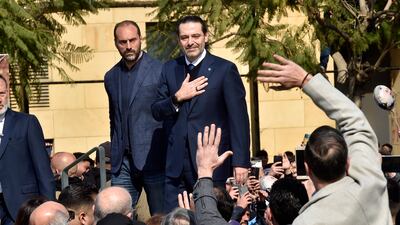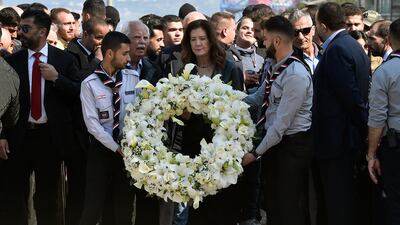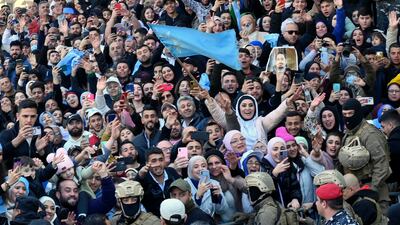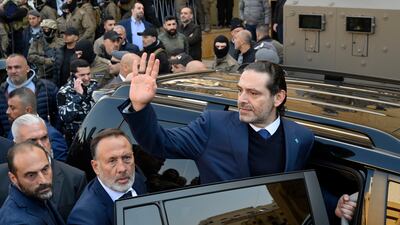Saad Hariri, the former Prime Minister of Lebanon and an influential figure within the Sunni Muslim community there, returned to the public eye on Tuesday afternoon – albeit briefly.
More than a year after withdrawing from political life – spending much of that time in the UAE – Mr Hariri was greeted by many hundreds of adoring supporters at the tomb of his father Rafic, 18 years after his assassination.
Mr Hariri arrived in Beirut on Sunday night and is expected to only spend a few days in Lebanon.
While he has met with a handful of religious figures and political leaders, he is not expected to make any public statements related to the precarious political situation Lebanon finds itself in.
Security was tight as Mr Hariri arrived at the tomb next to the Mohamed Al Amin mosque in downturn Beirut. He recited prayers in front of his father's grave, waved at the crowd and shook hands with a few supporters, many waving the blue flags of the Future Movement, which was founded by Rafic Hariri.
The latter, who also served two terms as prime minister, was assassinated in 2005 when a giant bomb went off near his motorcade. Another 22 people were killed.
Last year a UN tribunal found two members of Iran-backed Hezbollah, the Lebanese armed group and political party, guilty in absentia of being accomplices to the attack. Another Hezbollah operative was convicted over his role in 2020. Hezbollah denies any involvement.
Last January, Saad Hariri unexpectedly announced his withdrawal from political life and said he would not run in parliamentary elections scheduled a few months later. He also urged members of the Future Movement to follow suit, although many ignored his pleas. Nonetheless, it meant lower voter turnouts in Sunni areas and the departure from the political scene of a key leader of the community.
In Lebanon's confessional system, the presidency is reserved for a Maronite Christian, the prime minister for a Sunni Muslim, and the speaker of parliament for a Shiite Muslim.








